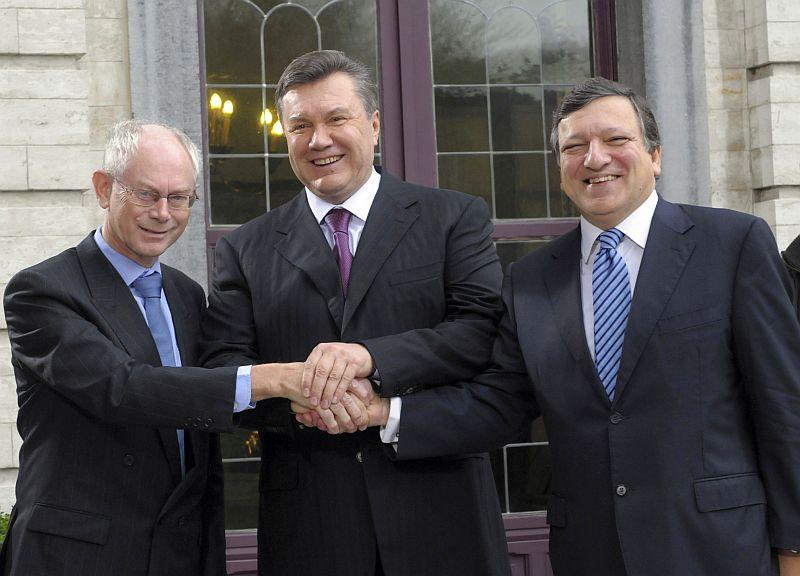KYIV, Ukraine—A U.S. Trade Representative report recently named Ukraine the top country for copyright pirating—a place where films, music, programs, and games, paid for by consumers in other countries, are easily downloaded for free. Experts say the situation is very unlikely to change in the near future.
“Lately I’ve been downloading books and music [for free],“ says Ksenia Tarasevich, 24, of Kyiv. ”As for films, I watch them online,” she says. She did pay for her anti-virus software, however, because she trusts it to defend her computer better.
Tarasevich says she has almost never paid for music. She has about 50 DVDs, most of which she bought more than a decade ago. Most movies and songs Ukrainians want are on the Russian social network, Vkontakte, or on the Ukrainian file-sharing site EX.ua and other online sources.
The U.S. Trade Representative (USTR) designated Ukraine as its “priority foreign country"—the singular, top category for copyright offenders—in its annual report intellectual property protection on May 1. It is the first country to earn this designation for seven consecutive years.
Impossible to Root Out
The problem has been around for years, and will likely remain for years to come, says Maria Ortynska, director of Ukrainian patent law company IPStyle.
“It’s connected to our mentality,” she says. “Many Ukrainians don’t understand why they need to pay for music, films, and programs, if they can download them. Furthermore, not many understand that an artist or a group of artists put effort into working on a piece, and correspondingly, that it is worth remuneration.”
It is also hard to overcome piracy, Ortynska says, because the cost of these intellectual products is too high for the average Ukrainian.
The average monthly salary in Ukraine is $375, or $4,500 annually.
“Not everyone can afford an operating system for 1,000 hryvnias [$125] or [Microsoft] Office for 5,000 hryvnias [$625],“ she says. ”American corporations that sell these products don’t understand that not every Ukrainian is able to buy it.”
Costs for Developers
A representative of a Ukrainian software company, who requested the name of the company not be published, says his company loses hundreds of thousands of dollars because of piracy.
Overall, the Ukrainian economy loses around 1 billion euros [$1.29 billion], says Antonina Pakharenko-Anderson, president of the Ukrainian Alliance Against Counterfeiting and Piracy, who spoke at a World Intellectual Property Day event in April.
One of the companies that loses out to piracy is ABBYY Ukraine. ABBYY develops software, including the popular electronic translation program Lingvo.
Roman Solod, a copyright specialist at ABBYY, says piracy not only hurts sales, but also increases company costs; ABBYY spends money on battling piracy in court, paying salaries for staff lawyers, and supporting anti-piracy advertising campaigns.
Meanwhile, the government is taking some action to correct the situation. On May 15, the Cabinet of Ministers approved a new anti-piracy bill. The bill would allow intellectual property owners to put electronic stamps on their work to track it.
Radio Ukraine quoted the Ukrainian State Service of Intellectual Property on May 17:"Ultimately, implementation of the provisions of the draft law will help avoid application against Ukraine of the economic sanctions by the U.S. government, ensure effective protection of intellectual property rights, and implementation of Ukraine’s international obligations.”
But Solod says Ukraine has a lot of work ahead: “To fully overcome [piracy] is hardly possible. It’s a utopic idea.”
Compared to the European Union and the United States, where piracy comprises 20–50 percent of the software market, Ukraine’s 85–87 percent is a daunting portion of the market to tackle.
Solod says government measures could cause a decline in the illegal software market, but cannot eliminate it. He says the most effective way to beat piracy is a public-awareness campaign defending copyright laws.
“Without changes in the mentality of citizens,” Solod says, “All anti-piracy work is at risk of becoming only [viewed as] police persecution.”
Correction: An error appeared in a previous version of this article. The internet video-on-demand company Megogo has obtained permissions for the movies it streams. The Epoch Times regrets the error.



